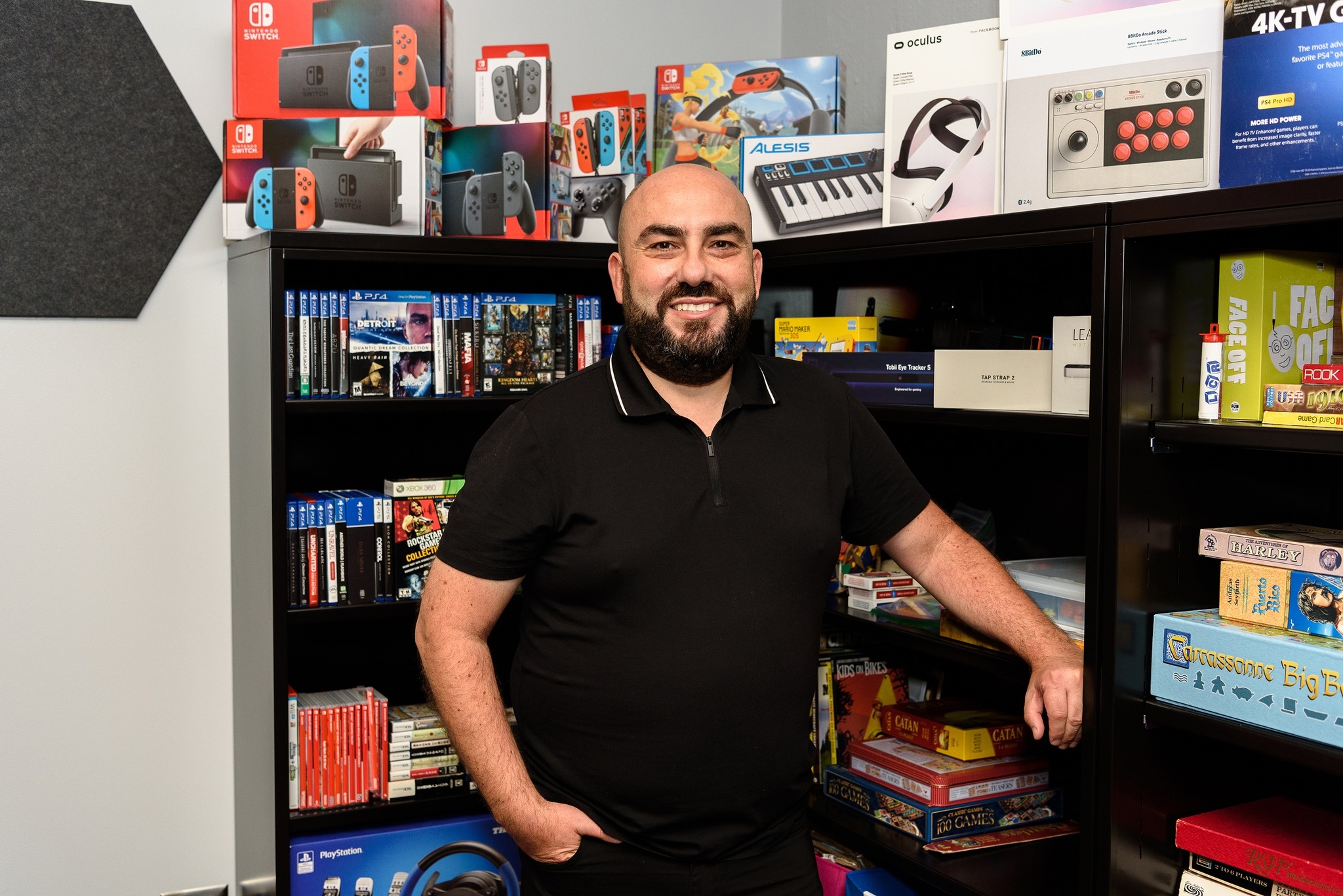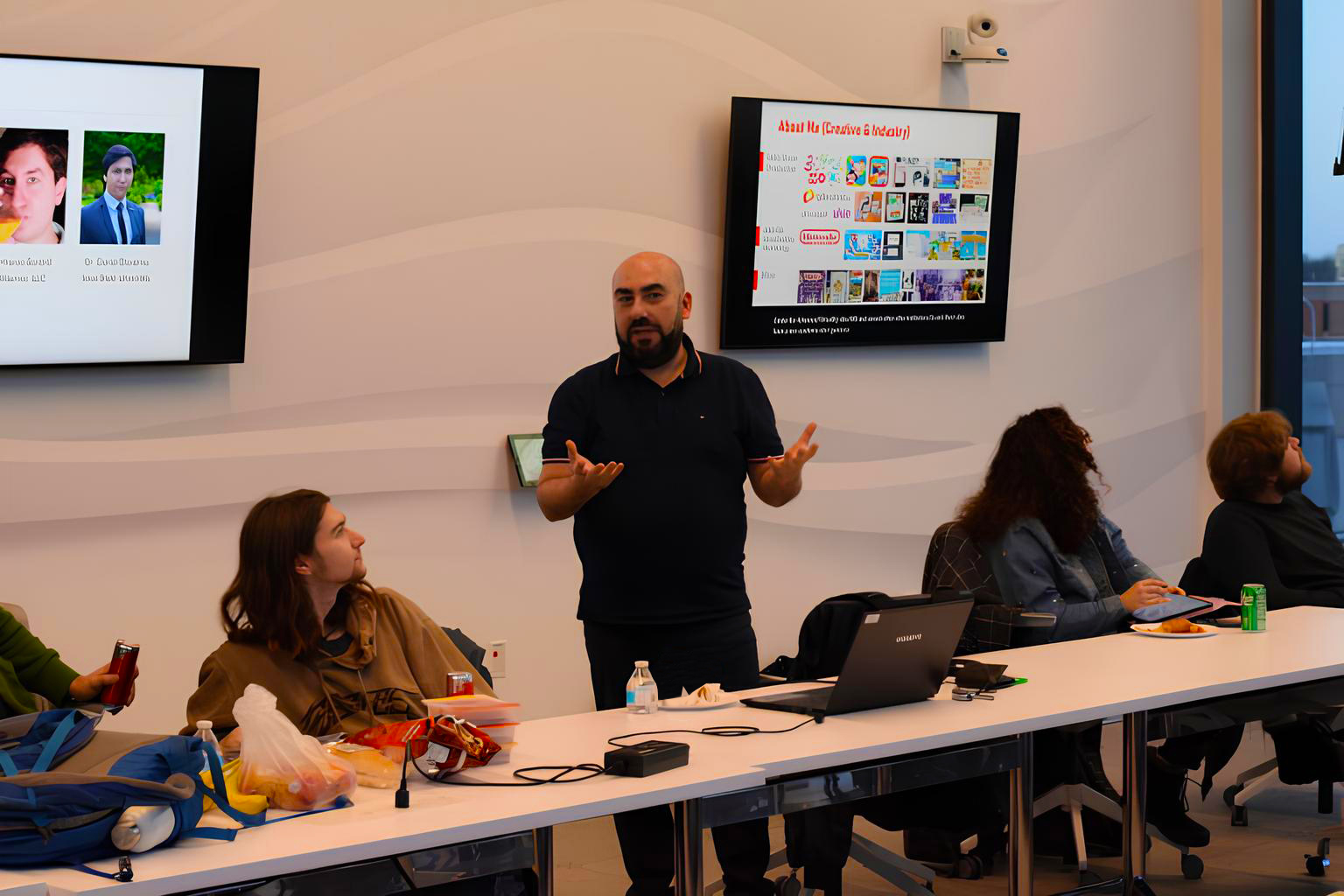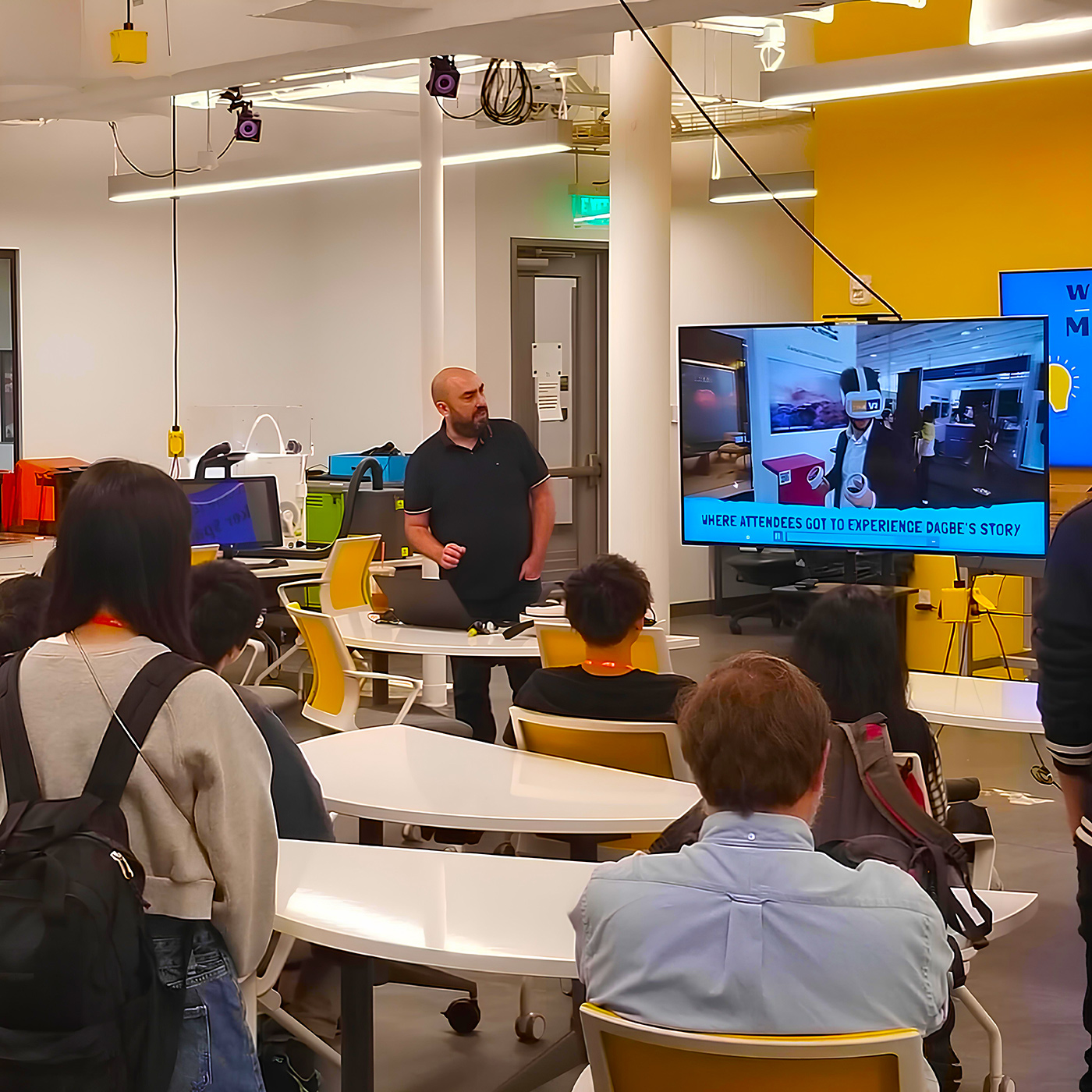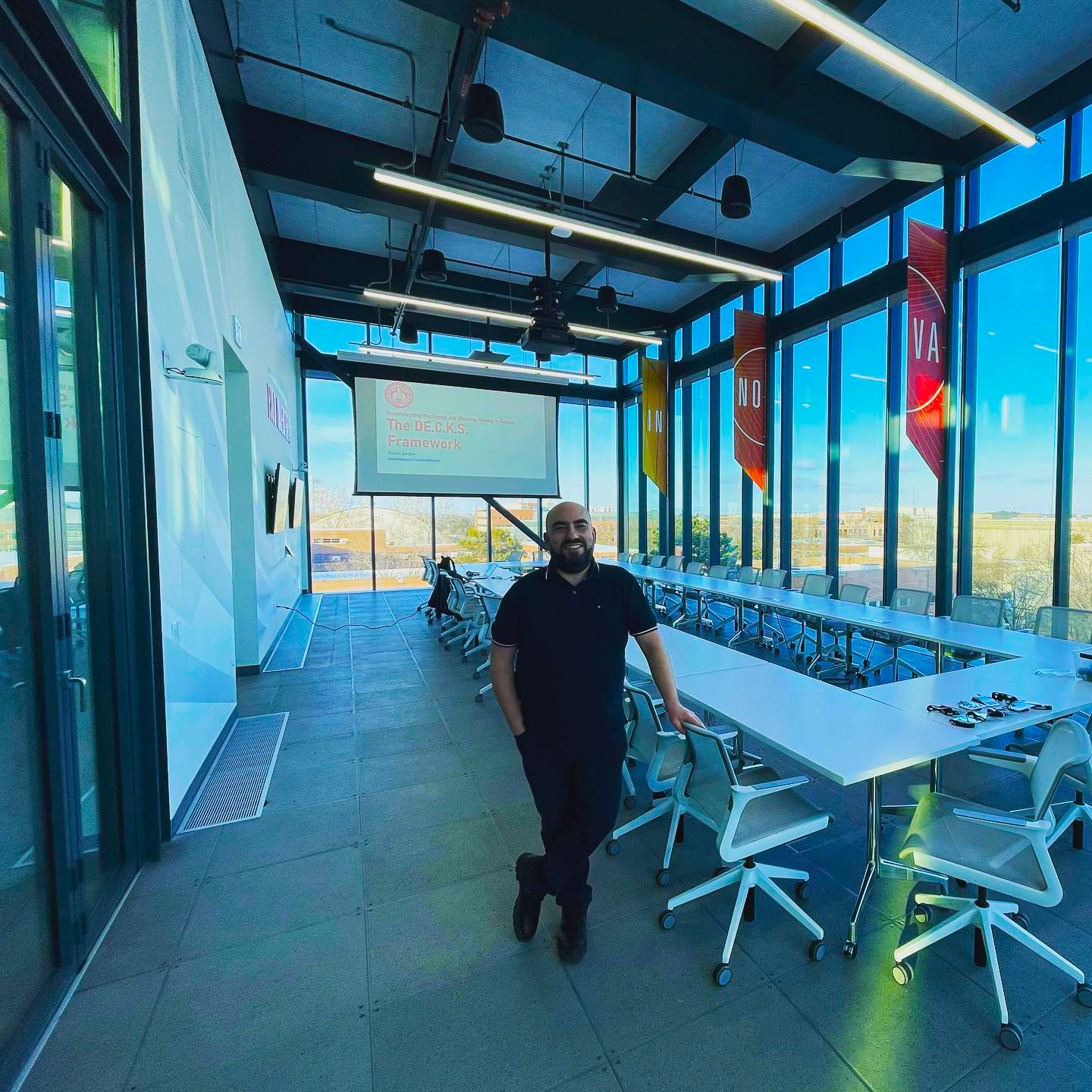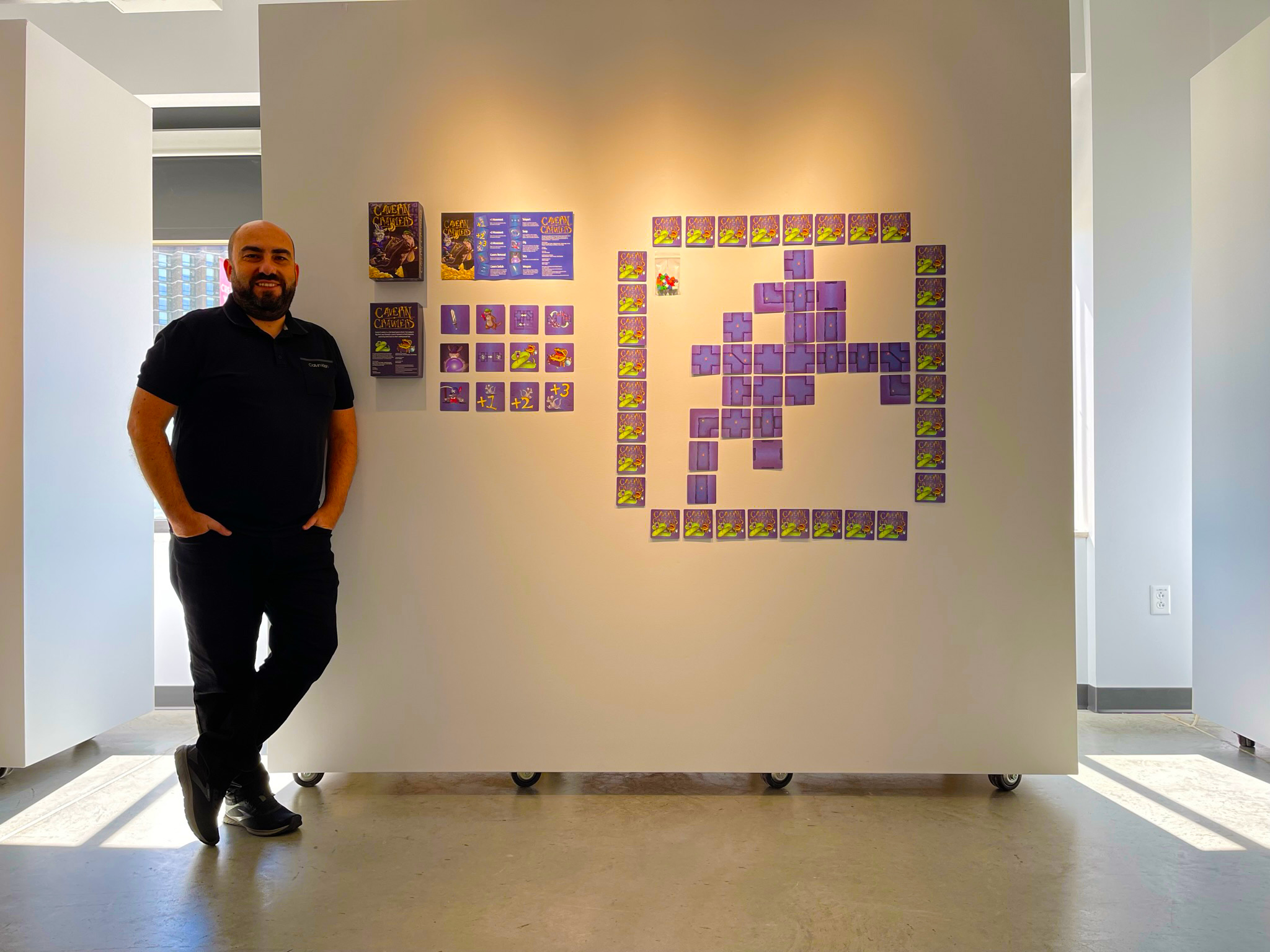Dr. Sercan Sengun is a researcher, teacher, and game designer, exploring phenomena at the intersections of video game studies, gamer communities, cultural informatics, virtual identities, and interactive narratives. He is currently an Assistant Professor of Games and Interactive Media at University of Central Florida and a research affiliate for MIT Center for Advanced Virtuality, MIT IDSS (MIT Institute for Data, Systems, and Society) within the Antiracism, Games, and Immersive Media ICSR Project Team, and QCRI ACUA (Qatar Computing Research Institute, Audience, Customer and User Analytics) Lab. His research group VIR2L (pronounced "Virtual"; Virtual Identity and Representation Research Lab) explores the intersections of identity, representation, and interactive systems, focusing on how virtual environments shape and reflect personal and cultural experiences. In the past, he conducted research as a part of MIT CSAIL (Computer Science and Artificial Intelligence Laboratory), MIT ICE Lab (Imagination, Computation, and Expression Laboratory), and Hamad Bin Khalifa University's QCRI, and taught graduate and undergraduate game design courses at Illinois State University, Northeastern University, Bahcesehir University, and Istanbul Bilgi University.
Welcome
Academic Appointments

University of Central Florida
- DIG 2000: Introduction to Digital Media*
- DIG 2500: Fundamentals of Interactive Design (UCF Costa Rica)
- DIG 3175: Design for Access and Engagement*
- DIG 3840: Computer as a Medium*
- DIG 4630: Creative Industries*
- DIG 4714: Intermediate Game Development
- DIG 4778: Game Design Tools & Plugins
- DIG 4912: Directed Independent Research
- DIG 4941: Internship
- DIG 5831: Computational Media†

Massachusettes Institute of Technology
- CMS 628/828: Advanced Identity Representation†
- CMS 950: Multimedia Workshop†

Illinois State University
- ART 18/19 (Shanghai Normal University Tianhua College): Introduction to Game Design
- ART 444A13-001: Problems in Studio Work†
- CTK 351: Game Design I
- CTK 352: Game Design II
- CTK 353: Game Development
- CTK 355A01: Game Studio Capstone I
- CTK 355A02: Game Studio Capstone II
- CTK 380.3/380.4: Introduction to Game Design
- CTK 380.5/380.6: Introduction to Game Development
- CTK 380.8: Games and Society
- CTK 460.1: Computer Arts Studio: Play and Society†
- CTK 460.1: Computer Arts Studio: Experimental Technologies for Games†
- CTK 480.2: Digital Game Concept Development & Production†
- CTK 390/490: Directed Projects in Art Technology†
- CTK 499: Independent Research for the Master's Thesis†
- HON 202A78: Diversity in Digital Platforms and Equitable Virtual Environments

Northeastern University
- GAME 2500: Foundations of Game Design
- GAME 3800: Game Concept Development & Production
- GAME 1110: Games and Society
- GSND 5110: Game Design and Analysis†
- GSND 5130: Mixed Research Methods for Games†
- GSND 6320: Psychology of Play†

Istanbul Bahcesehir University
- GAD 5101: Games and Culture†
- GAD 5103: Game Art and Aesthetics†
- GAD 5888-1 and 2: Thesis I and II†

Hamad Bin Khalifa University

Istanbul Bilgi University
- GAME 103: Introduction to Design and Creative Thinking
In the News
GaIM Professor Becomes a Board Member to Games for Change Local Chapter



GaIM Professor and Team Develop Immersive VR Thriller with Mental Health Message



Creative Technologies professor creates gaming database for educators


Graduate student’s passion fuels development of video game Occentatia

Video games shape who we are: Studies reveal subliminal influence and control

Design of video game characters has physical-world repercussions
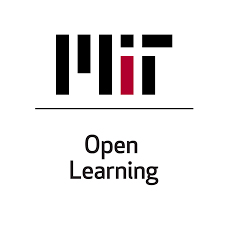


Choose your own adventure: Students demonstrate creations at Games Showcase

Illinois State game design course uses online tools to build community, awareness

Illinois State's Creative Technologies Program is leveling up

Creative Technologies Program plans to bring video game design sequence to campus

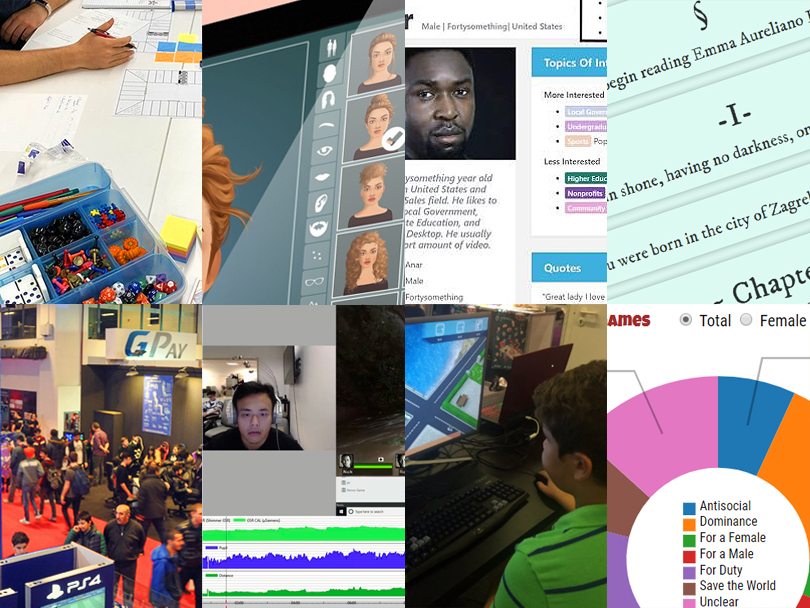
About My Research
My research group VIR2L (pronounced "Virtual"; Virtual Identity and Representation Research Lab) explores the intersections of identity, representation, and interactive systems, focusing on how virtual environments shape and reflect personal and cultural experiences. Our research goals are to produce breakthrough results, publications, and academic tools in three main areas: (1) design principles for better virtual identity systems in digital platforms; (2) digital narratives on cultural and personal representations; and (3) cross-cultural challenges in media production and use.
- Virtual Identities and Digital Representation
- Game Design & Development
- Gaming for Activism, Art, Learning, and Impact
- APG (Automatic Persona Generation)
- Interactive Narratives & E-Literature
- Emerging Creative Industries
- Game Engagement & Player Research
- Cultural Informatics
Book Chapters
2023
Sercan Şengün, “Video Oyunlarında Tabula Rasa Kimlikler ve Pasif Seyircilik: Yürüme Simülatörleri Üzerine Bir Vaka İncelemesi” (2023) In: Ertuğrul Süngü and Barbaros Bostan (eds.) Dijital Oyunlar 2.0 Kimlik. Istanbul: Nobel Academic Press.
2023
Sercan Şengün, “Sanal Oyun Dünyaları Kime Ait: Üretici Firmalar ve Oyuncular Arasındaki Mülkiyet Gerilimleri,” (2023) In: Ertuğrul Süngü and Barbaros Bostan (eds.) Dijital Oyunlar 2.0 Kimlik. Istanbul: Nobel Academic Press.
2022
Sercan Şengün, Jennifer Price, Lyndsie Schlink, Kristin Walker (2022), Azeroth Has a Workplace Gender Inequality Problem: Gendered Professions Bias in Virtual Worlds, In: Barbaros Bostan (eds.) Games and Narrative: Theory and Practice, International Series on Computer Entertainment and Media Technology, Cham: Springer. doi: 10.1007/978-3-030-81538-7_7
2022
Özge Mirza, Sercan Şengün (2022), An Analysis of the Use of Religious Elements in Assassin’s Creed Origins, In: Barbaros Bostan (eds.) Games and Narrative: Theory and Practice, International Series on Computer Entertainment and Media Technology, Cham: Springer. doi: 10.1007/978-3-030-81538-7_16
2022
Sercan Şengün (2022), Six Degrees of Videogame Narrative, In: Barbaros Bostan (eds.) Games and Narrative: Theory and Practice, International Series on Computer Entertainment and Media Technology, Cham: Springer. doi: 10.1007/978-3-030-81538-7_1
2021
Sercan Şengün (2021), Play and Society (CTK 359/460.1). In: Richard E. Ferdig, Emily Baumgartner, & Enrico Gandolfi (eds.) Teaching the Game: A Collection of Syllabi for Game Design, Development, and Implementation, pp. 3-19, Pittsburgh, PA: Carnegie Mellon University ETC Press. doi: 10.1184/R1/14866866
2021
D. Fox Harrell, Sercan Şengün, and Danielle Olson (2021), Africa and the Avatar Dream: Mapping the Impacts of Videogame Representations of Africa. In: Kelly Josephs and Roopika Risam (eds.) The Digital Black Atlantic, pp. 183-206, Minneapolis, MN: University of Minnesota Press.
2020
Sercan Şengün, Güven Çatak, and Mustafa Feyyaz Sonbudak (2020), "It is so good, it cannot be Turkish": A case study of local video game producers versus local gamer communities. In: Tolga Hepdinçler and Hasan Kemal Süher (eds.) Creative Industries in Turkey, pp. 55-72, Berlin: Peter Lang Publishing. doi: 10.3726/b17040
2020
Ysabelle Coutu, Yangyuqi Chang, Wendi Zhang, Sercan Sengun, and Ray LC (2020), Immersiveness and usability in VR: A comparative study of Monstrum and Fruit Ninja. In Barbaros Bostan (ed.) Game User Experience and Player-Centered Design, pp. 349-360, Berlin: Springer.
2020
Sidan Fan, Jin H. Kim, Sonya I. McCree, and Sercan Sengun (2020), Integrate: A digital game for testing conformity in decision making. In Barbaros Bostan (ed.) Game User Experience and Player-Centered Design, pp. 21-42, Berlin: Springer.
2020
Ysabelle Coutu, Yangyuqi Chang, Wendi Zhang, and Sercan Sengun (2020), The relationship between cohesive game design and player immersion: A case study of original versus reboot Thief. In Barbaros Bostan (ed.) Game User Experience and Player-Centered Design, pp. 437-448, Berlin: Springer.
2019
Sercan Sengun (2019), How Turkish Literature Permeated to Hypertext and E-Publishing: The Intertwined Cases of altZine and altKitap. In: Erkan Saka (ed.) New Media Studies V: History of the Turkish Internet, Istanbul, Turkey: Alternative Informatics Association Press, pp. 449-490.
2018
Sercan Sengun (2018), A Survey of Marketing Management for Videogames Industry in Turkey. In: Selcen Ozturkcan and Elif Yolbulan Okan (eds.) Marketing Management in Turkey, Bradford, UK: Emerald Publishing, pp.353-388.
2016
Selcen Ozturkcan and Sercan Sengun (2016), Pleasure in Pain: How Accumulation in Gaming Systems Produce Grief. In: Barbaros Bostan (ed.) Gamer Psychology and Behaviour, Cham, Sweden: Springer International Publishing, pp. 41-55. doi: 10.1007/978-3-319-29904-4
2016
Sercan Şengün (2016), Video Oyunlarının Toplumsal ve Politik Değişim Potansiyellerini Okumak Amacı ile Farklı Bir Sınıflandırma Önerisi (Turkish, title trans.: A Classification Proposal to Understanding the Potential of Videogames in Social and Political Change). Yeni Medya Çalışmaları II. Ulusal Kongre Kitabı, pp. 459-471.
2015
Sercan Sengun (2015), Gaze of the Local vs the Other: Images of Istanbul in Video Games. In: Veronika Bernard (ed.) IMAGES (IV) - Images of the Other, Berlin: Lit Verlag, pp. 95-104.
2015
Selcen Ozturkcan and Sercan Sengun (2015), Gaining Rewards vs Avoiding Loss: When Does Gamification Stop Being Fun?. In: Donna Davis and Harsha Gangadharbatla (eds.) Emerging Research and Trends in Gamification, Hershey: IGI-Global, pp. 48-72.
2015
Sercan Sengun (2015), Sanal Hikaye Anlatıcılığı Çağında Yaşayan Bilimkurgu ve Fantastik Dünyalar Olarak Video Oyunları (Turkish, title trans.: Videogames as Living Science Fiction and Fantasy Worlds in the Age of Virtual Storytelling). In: Seval Şahin, Banu Öztürk, and Didem Ardalı Büyükarman (eds.) Edebiyatın İzinde: Fantastik ve Bilimkurgu, Istanbul: Bağlam Yayınevi, pp. 211-220.
2014
Sercan Şengün (2014), Dijital Avatarlar için Semiyotik Bir Okuma ve Avatarların Dijital İletişimde Belirsizlik Azaltma Rolleri (Turkish with English abstract, title trans.:A Semiotic Reading of Digital Avatars and Their Role of Uncertainty Reduction in Digital Communication). Dijital İletişim Etkisi Uluslararası Akademik Konferansı Bildiri Kitabı, Istanbul: Iskenderiye Kitap, pp. 33-44.
Journals
2023
Barbaros Bostan and Sercan Şengün (2023), Forging connections: The social dynamics of ‘Death Stranding’ as a paradigm shift in gaming, New Trends in Computer Sciences 1(2), pp. 97-112. doi: 10.3846/ntcs.2023.19412
2023
Sercan Şengün, João M. Santos, Joni Salminen, Milica Milenkovic, Bernard J. Jansen (2023), Is Death Only the Beginning? How People Mourn Artificial Characters in Social Media, Games and Culture 20(1), pp. 77-124. doi: 10.1177/15554120231190195
2022
Joni Salminen, Soon-gyo Jung, Lene Nielsen, Sercan Şengün, Bernard J. Jansen (2022), How does varying the number of personas affect user perceptions and behavior? Challenging the ‘small personas’ hypothesis! International Journal of Human - Computer Studies 168 (102915). doi: 10.1016/j.ijhcs.2022.102915
2022
Sercan Şengün, Peter Mawhorter, James Bowie-Wilson, Yusef Audeh, Haewoon Kwak, D. Fox Harrell (2022), Contours of virtual enfreakment in fighting game characters. Technological Forecasting and Social Change 180 (121797). doi: 10.1016/j.techfore.2022.121707
2022
Joni Salminen, Sercan Şengün, João M. Santos, Soon-gyo Jung, and Bernard J. Jansen (2022), Can unhappy pictures enhance the effect of personas? A user experiment. ACM Transactions on Computer-Human Interaction 29(2), pp. 1-59. doi: 10.1145/3485872
2022
Sercan Şengün, João M. Santos, Joni Salminen, Soon-gyo Jung, and Bernard J. Jansen (2022), Do players communicate differently depending on the champion played? Exploring the Proteus effect in League of Legends. Technological Forecasting and Social Change 177(121556). doi: 10.1016/j.techfore.2022.121556
2020
Sercan Şengün and Selcen Ozturkcan (2020), Re-shaped by Mobile Technologies’ Disruption: The Videogame Industry in Turkey. Studies on Marketing Insights 4(1): pp. 44-56.
2020
Joni Salminen, Juan Conporan, Soon-gyo Jung, Sercan Sengun, and Bernard J. Jansen (2020), Topic-driven Toxicity: Exploring the Relationship between Online Toxicity and News Topics. PLoS ONE 15(2): e0228723. doi: 10.1371/journal.pone.0228723
2018
Peter Mawhorter, Sercan Şengün, Haewoon Kwak, and D. Fox Harrell (2018), Identifying Regional Trends in Avatar Customization. IEEE Transactions on Games, 10(2), pp.1-13. doi: 10.1109/TG.2018.2835776
2018
Joni Salminen, Sercan Şengün, Haewoon Kwak, Jisun An, Bernard J. Jansen, Soon-Gyo Jung, D. Fox Harrell, and Sarah Vieweg (2018), From 2,722 Segments to 5 Personas: Summarizing a Diverse Online Audience by Generating Culturally Adapted Personas. First Monday, 23(6), doi: 10.5210/fm.v23i6.8415
2018
Sercan Şengün and D. Fox Harrell (Spring 2018), Virtual Identity Systems Should Better Support Gulf Nationals. The Oxford Gulf and Arabian Peninsula Studies Forum, University of Oxford, pp. 4-8.
2017
Sercan Şengün (2017), Ludic Voyeurism and Passive Spectatorship in Gone Home and Other "Walking Simulators." Video Game Art Reader, 1(1), pp. 30-42.
2015
Sercan Şengün (2015), Why Do I Fall for the Elf, When I Am No Orc Myself? The Implications of Virtual Avatars in Digital Communication. Comunicação e Sociedade, 27, pp. 181-193, doi: 10.17231/comsoc.27(2015).2096
2015
Sercan Şengün (2015), Por Que é Que Hei de Apaixonar-me Por Um Duende, Quando Também Não Sou Nenhum Ogre? As Implicações Dos Avatares Virtuais Na Comunicação Digital. Comunicação e Sociedade, 27, pp. 181-193, doi: 10.17231/comsoc.27(2015).2096
2015
Sercan Şengün (2015), A Semiotic Reading of Digital Avatars and Their Role of Uncertainty Reduction in Digital Communication. Journal of Media Critiques, Digital Communication Impact Special Issue, doi: 10.17349/jmc114311
2014
Sercan Şengün (2014), Sanal Hikaye Anlatıcılığı Çağında Yaşayan Bilimkurgu ve Fantastik Dünyalar Olarak Video Oyunları (Turkish, title trans.: Videogames as Living Science Fiction and Fantasy Worlds in the Age of Virtual Storytelling). Varlık, 1278, pp. 16-21.
2013
Sercan Şengün (2013), Silent Hill 2 and The Curious Case of Invisible Agency. Lecture Notes on Computer Science, 8230, pp. 180-185, doi: 10.1007/978-3-319-02756-2_22
Proceedings
2024
Caglar Yildirim, Sercan Şengün, Eyup Kucuk, Mehmet Akhoroz, and D. Fox Harrell (2024). “From My Vantage Point: Exploring The Effect of First-Person and Third-Person Perspectives on Social Acceptance in VR Roleplaying Games,” Proceedings of the International Conference on Mobile and Ubiquitous Multimedia (MUM '24) (1-4 December, Stockholm, Sweden), pp. 471–474. doi: 10.1145/3701571.3703388
2024
Sercan Şengün (2024). “Eye tracking in VR: A case study of ‘Missing’,” In Serious Games: 10th Joint International Conference, JCSG 2024, New York City, NY, USA, November 7–8, 2024, Proceedings. Springer-Verlag, Berlin, Heidelberg, 408–413. doi: 10.1007/978-3-031-74138-8_31
2024
Sercan Şengün, Caglar Yildirim, and D. Fox Harrell (2024). “The effects of roleplaying orientations on transformative learning and perspective taking in virtual reality,” 23rd IFIP International Conference on Entertainment Computing, ICEC 2024. Sep 30-Oct 3, Manaus, Brazil. doi: 10.1007/978-3-031-74353-5_15
2024
Sercan Şengün, Joni Salminen, Soon-gyo Jung, Kholoud K. Aldous, and Bernard Jansen (2024). ““‘There’s something about Noura’: Exploring think-aloud reasonings for users' persona choice in a design task,” ACM Conference on Designing Interactive Systems, DIS 2024 pp. 1234-1247, July 1-5, Copenhagen, Denmark. doi:10.1145/3643834.3661512.
2023
Caglar Yildirim, Sercan Şengün, Mehmet Akhoroz, Eyup Kucuk, and D. Fox Harrell (2023). “Through the looking glass: The role of virtual mirrors in shaping empathy in virtual reality perspective taking,” MUM2023 (22nd International Conference on Mobile and Ubiquitous Multimedia), pp. 495–498, December 3-6, Vienna, Austria. doi:10.1145/3626705.3631789
2023
Joni Salminen, Sercan Şengün, João M. Santos, Soon-gyo Jung, Lene Nielsen, and Bernard Jansen (2023). “The choice of a persona: An analysis of why stakeholders choose a given persona for a design task,” HCII 2023 25TH International Conference on Human-Computer Interaction. 23-28 July, Copenhagen, Denmark. doi:10.1007/978-3-031-48038-6_18
2023
Caglar Yildirim, Sercan Sengun, Pakinam Amer, JJ Hawke, D Fox Harrell (2023). “Toward Computationally-Supported Roleplaying for Perspective-Taking,” HCI in Games: 5th International Conference, HCI-Games 2023, Held as Part of the 25th HCI International Conference (23-28 July, Copenhagen, Denmark), pp. 154-171 doi:10.1007/978-3-031-35930-9_11.
2022
Sercan Şengün and Barbaros Bostan (2022). “Passive Collaboration and Connections in a ‘Strand Game’: Changing the Way We Play,” GAME-ON’2022: 23rd International Conference on Intelligent Games and Simulation. September 14-16, Lisbon, Portugal.
2021
Joni Salminen, Milica Milenkovic, Sercan Şengün, Soon-gyo Jung, and Bernard Jansen (2021). “Weaponizing Words: Analyzing Fake News Accusations Against Two Online News Channels,” BESC 2021: The 8th International Conference on Behavioural and Social Computing. October 29-31, Doha, Qatar.
2021
Joni Salminen, Sercan Şengün, Soon-gyo Jung, and Bernard Jansen (2021). “Comparing Persona Analytics and Social Media Analytics for a User-Centric Task Using Eye-Tracking and Think-Aloud,” CHItaly 2021: Proceedings of the 14th Biannual Conference of the Italian SIGCHI Chapter. July 11-13, Bozen-Bolzano, Italy, pp. 1–8, doi: 10.1145/3464385.3464734.
2020
Joni Salminen, Soon-gyo Jung, Shammur Chowdhury, Sercan Şengün, and Bernard J. Jansen (2020), Personas and Analytics: A Comparative User Study of Efficiency and Effectiveness for a User Identification Task. CHI '20: Proceedings of the 2020 CHI Conference on Human Factors in Computing Systems pp. 1-13. April 24-30, 2020, Honolulu, Hawaii, doi: 10.1145/3313831.3376770.
2020
Joni Salminen, Liu Ying-Hsang, João Santos, Sercan Şengün, and Bernard J. Jansen (2020), The effect of numerical and textual information on visual engagement and perceptions of AI-driven persona interfaces. IUI '20: Proceedings of the 25th International Conference on Intelligent User Interfaces, March 17-20, 2020, Cagliari, Italy, pp. 357–368, doi: 10.1145/3377325.3377492.
2019
Sercan Şengün, Joni Salminen, Peter Mawhorter, Soon-Gyo Jung, and Bernard J. Jansen (2019), Exploring the Relationship Between Game Content and Culture-based Toxicity: A Case Study of League of Legends and MENA Players. HT '19 Proceedings of the 30th ACM Conference on Hypertext and Social Media, September 17-20, 2019, Hof, Germany, pp. 87-95, doi: 10.1145/3342220.3343652.
2019
Sercan Şengün, Joni Salminen, Soon-Gyo Jung, Peter Mawhorter, and Bernard J. Jansen (2019), Analyzing Hate Speech Toward Players from the MENA in League of Legends. CHI EA '19 Extended Abstracts of the 2019 CHI Conference on Human Factors in Computing Systems. Paper No. LBW0173 , May 4-9, 2019, Glasgow, Scotland, pp. 1-6, doi: 10.1145/3290607.3312924.
2019
Joni Salminen, Sercan Şengün, Soon-Gyo Jung, and Bernard J. Jansen (2019), Design Issues in Automatically Generated Persona Profiles: A Qualitative Analysis From 38 Think-aloud Transcripts. CHIIR '19: Proceedings of the 2019 Conference on Human Information Interaction and Retrieval, March 10-14, 2019, Glasgow, Scotland, pp. 225-229, doi: 10.1145/3295750.3298942.
2018
Ali Jahanian, Sercan Şengün, Peter Mawhorter, Haewoon Kwak, and D. Fox Harrell (2018), Grounding AI-driven Cross-cultural Analysis with Community Insights. CHI 2018 Workshop: ArabHCI Working with Arab Communities, April 21-26, 2018, Montreal, Canada.
2017
Joni Salminen, Sercan Şengün, Haewoon Kwak, Bernard Jansen, Jisun An, Soon-Gyo Jung, Sarah Vieweg, and D. Fox Harrell (2017), Generating Cultural Personas from Social Data: A Perspective of Middle Eastern Users. IEEE International Conference on Future Internet of Things and Cloud (FiCloud-2017), August 21-23, 2017, Prague, Czech Republic, doi: 10.1109/FiCloudW.2017.97.
2017
D. Fox Harrell, Sarah Vieweg, Haewoon Kwak, Chong-U Lim, Sercan Sengun, Ali Jahanian, and Pablo Ortiz (2017), Culturally-grounded Analysis of Everyday Creativity in Social Media: A Case Study in Qatari Context. C&C '17: Proceedings of the 2017 ACM SIGCHI Conference on Creativity and Cognition, June 27-30, 2017, Singapore, pp. 209-221, doi: 10.1145/3059454.3059456.
2013
Sercan Şengün (2013), Cybertexts, Hypertexts and Interactive Fiction: Why Shan't the Prodigal Children Overthrow Their Forefathers. LIT FICTION: Innovation, Difference, Irregularity, Istanbul: Mimar Sinan University Press, pp. 58-66.
2012
Sercan Şengün (2012), Engagement Model as the Basis for Video Game Design. ECREA 2012 Pre-conference: Experiencing Digital Games: Use, Effects & Culture of Gaming, Istanbul.
Book (Multiple Authors/Editors)
2023
N. Lee et al., Encyclopedia of Computer Graphics and Games, 1st ed. Dec 14, 2023. doi: 10.1007/978-3-319-08234-9 ISBN-10: 3031231597; ISBN-13: 978-3031231599.
Encyclopedia Entries
2022
Erin Elizabeth Ridgely, Sercan Şengün (2022), New Super Mario Bros. Wii, An Analysis. In: Newton Lee (ed.) Encyclopedia of Computer Graphics and Games, Cham, Sweden: Springer International Publishing. doi: 10.1007/978-3-319-08234-9_432-1.
2022
Rafael Gonzales, Sercan Şengün (2022), Hades: An Analysis. In: Newton Lee (ed.) Encyclopedia of Computer Graphics and Games, Cham, Sweden: Springer International Publishing. doi: 10.1007/978-3-319-08234-9_433-1.
2021
Rhiannon Kelly, Sercan Şengün (2021), Video Games and Accessibility: A Case Study of The Last of Us II. In: Newton Lee (ed.) Encyclopedia of Computer Graphics and Games, Cham, Sweden: Springer International Publishing. doi: 10.1007/978-3-319-08234-9_429-1.
2021
Tristan M. Simmons, Sercan Şengün (2021), Animal Crossing: New Horizons and Its Popularity During COVID-19 Pandemic. In: Newton Lee (ed.) Encyclopedia of Computer Graphics and Games, Cham, Sweden: Springer International Publishing. doi: 10.1007/978-3-319-08234-9_435-1.
2021
Mason Bates, Sercan Şengün (2021), Itch.io, History of. In: Newton Lee (ed.) Encyclopedia of Computer Graphics and Games, Cham, Sweden: Springer International Publishing. doi: 10.1007/978-3-319-08234-9_430-1.
2021
Lys Bump, Sercan Şengün (2021), Among Us and Its Popularity During COVID-19 Pandemic. In: Newton Lee (ed.) Encyclopedia of Computer Graphics and Games, Cham, Sweden: Springer International Publishing. doi: 10.1007/978-3-319-08234-9_431-1.
2021
Sam Godby, Sercan Şengün (2021), Resident Evil 2, History of. In: Newton Lee (ed.) Encyclopedia of Computer Graphics and Games, Cham, Sweden: Springer International Publishing. doi: 10.1007/978-3-319-08234-9_434-1.
2021
Lauren Elizabeth Stipp, Sercan Şengün (2021), The Sims Franchise, a Retrospective of Racial Representation and Skin Tones. In: Newton Lee (ed.) Encyclopedia of Computer Graphics and Games, Cham, Sweden: Springer International Publishing. doi: 10.1007/978-3-319-08234-9_436-1.
2018
Sercan Sengun (2018), Video Game Engagement: Psychological Frameworks. In: Newton Lee (ed.) Encyclopedia of Computer Graphics and Games, Cham, Sweden: Springer International Publishing. doi: 10.1007/978-3-319-08234-9_158-1.
White Papers
Check out some of my latest works

Missing
Missing is a missing person thriller with a mental health message at its core. Using cutting-edge eye-tracking technology, you will search Eleanor Parker’s home for clues about what happened to her. As you explore the surroundings, the environment responds to your gaze and you begin to piece together a thought-provoking picture.

On the Plane
To assist with perspective-taking, MIT researchers have developed “On the Plane,” a virtual reality role-playing game (VR RPG) that simulates discrimination. In this case, the game portrays xenophobia directed against a Malaysian America woman, but the approach can be generalized.

You Are On Mute
Are you stuck in a long and boring online meeting? Play the meeting instead... Collect and match the participants to earn the highest score and win the meeting!
Various selected projects
Your Quest, Should You Choose to Accept It! (2020, The Game Crafter)
A Murder Most Fowl: Bloody Plumage (2020, The Game Crafter)
Hidden Pandemic (2021, The Game Crafter)
Who goes there? (2021, Expressive Computing Project, Itch.io)
Ademâbâd (2019, Expressive Computing Project, online)
Neverwhere (2016, Expressive Computing Project, online)
Where2Begin (2016, Expressive Computing Project, online)
Why do they fight? (2018, Data Visualization Project, online)
